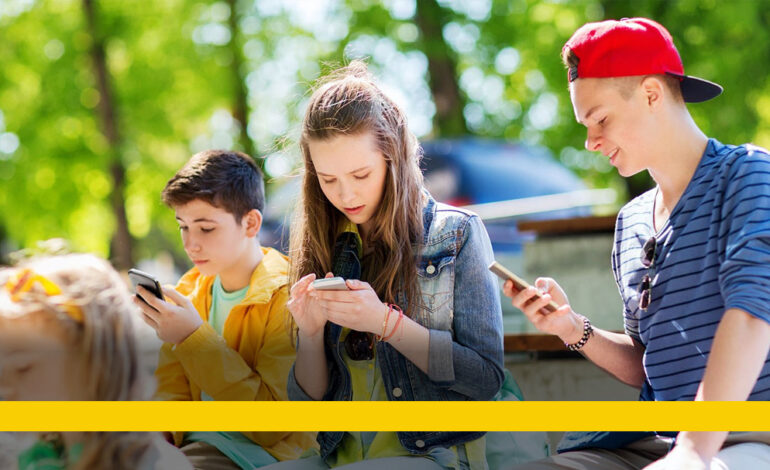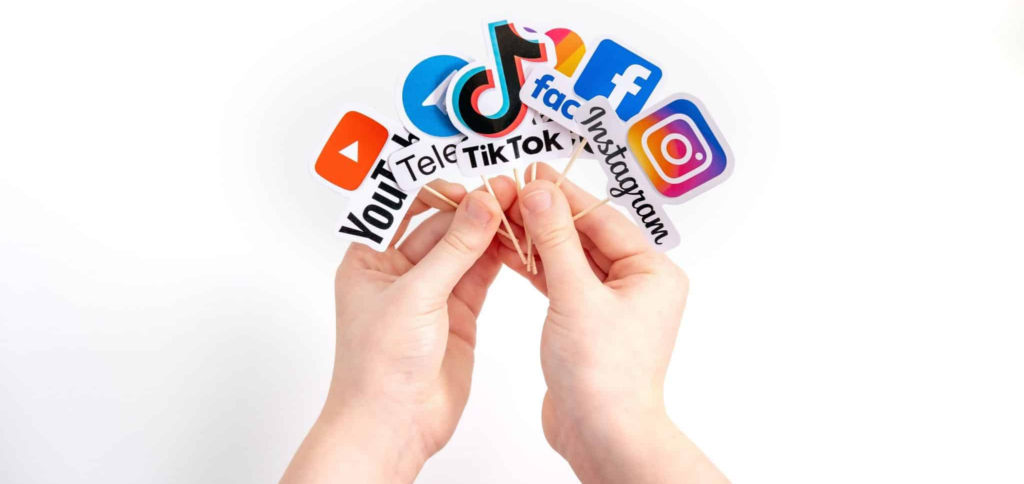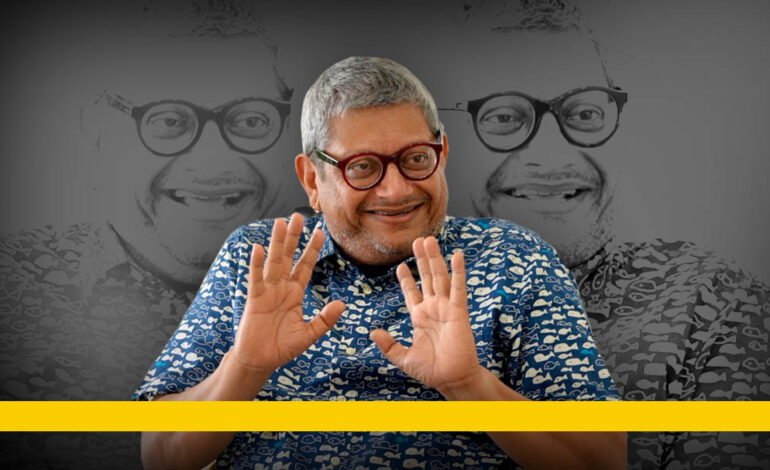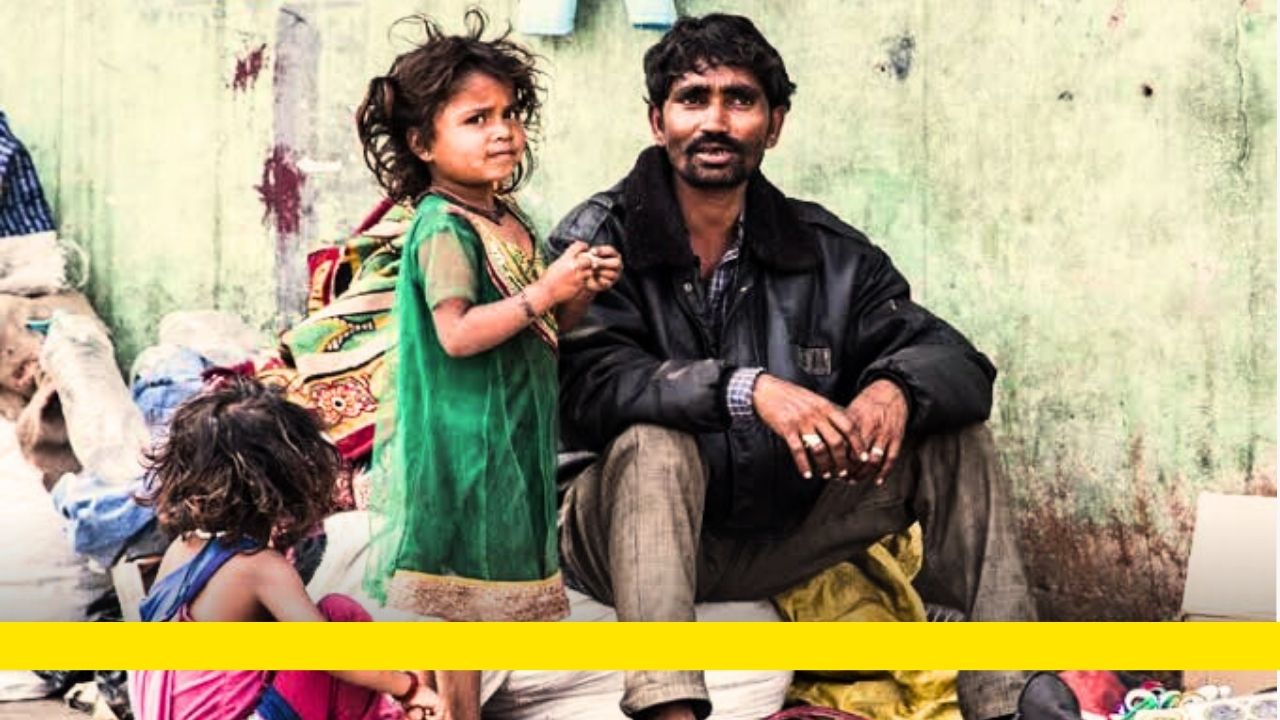
How do social media and smartphones affect the mental well being of our kids? A pertinent question that all parents among us ask ourselves. A new study from the US paints a bleak picture and warns about terrible consequences. A report from The AIDEM Desk.
Psychologists like Jean Marie Twinge have been warning the world about this for a while. Now the US Surgeon General has published an advisory corroborating the negative impacts of social media and smartphones on the mental health of children and young people. The advisory is based on the current body of evidence available regarding the use of social media and its impact on the young. It also points to the existing lacunae in serious and comprehensive research in this field. The major worry that this advisory expresses is about the potential threat that social media poses in the brain development of young people in their critical formative years.
The negative impact depends on the time spent on social media, the disruption that it causes to sleep and physical activity, the type of content each kid is exposed to, and the kind of engagement. The advisory says that brain development in an individual happens between the ages, 10 to 19. The problem is that this is also the age when risk taking behaviour is at its peak, and mental health issues such as depression sets in. When the impact of social media co-evolves with the mental vulnerabilities of this age, it is observed, life satisfaction is greatly reduced.
The advisory does not completely ignore the benefits of social media and smartphones, community and connection being the best of them. Access to information is also another crucial benefit.
Yet, the advisory cites many US-based studies to point to concrete evidence suggesting the potential harms of social media use for young people. One study reveals that adolescents who spend more than 3 hours per day on social media have double the possibility of having mental health issues such as anxiety and depression. Since social media was introduced in the US, there has been a 9% increase in depression and 12% increase in anxiety among the college-aged population. When social media use was reduced to 30 minutes daily for 3 weeks, the severity of depression also came down.
The US Surgeon General’s advisory concludes that social media perpetuates “body image concerns and eating disorders”. Another major issue of concern is the finding that 6 in 10 adolescent girls reported that they had been contacted by strangers on social media platforms “in ways that make them feel uncomfortable”.
Problematic social media use has been associated with reported and diagnosed Attention-Deficit/Hyperactivity Disorder (ADHD). The advisory says that there is a serious evidence gap here which needs to be addressed immediately.
Actions Suggested by the US Surgeon General
The advisory does not mince words when calling for interventions from policy makers to strengthen protection for children and young adults on social media platforms and ensure data privacy. Create a family media plan, create tech-free zones, encourage children to develop in-person friendships, be a model social media user for children, teach kids to be responsible online participants, teach kids about proper use of technology, report cyberbullying and online abuse, work with other parents to establish shared norms… these are the advices that the US Surgeon General gives the parents.
More Study Outcomes on Social Media and Young People
Here are a few more reported study outcomes related to social media use among children and young adults.
In the US, between 2011 and 2021, clinical depression among teenagers doubled. Between 2007 and 2019, suicide rates among teenagers nearly doubled. Among the 10-15 year age group, suicide rates tripled. Mental health of Gen Z (18-24 age group) is worse than their previous generations when they were at this age.
The China Interventions
In China, it is reported that the government has enforced rules for social media companies for compulsory blackout hours, and time limits for young people. Douyin is the Chinese version of Tiktok. For children aged under 14, the app will work only for 40 minutes per day. The government also made the companies add “go to bed” and “put down the phone” messages after each video is played for a child or adolescent user.
The Indian Situation
In India, no major comprehensive study has been conducted so far on the impact of social media on young people. A few studies with limited sample size and scope have identified both positive and negative impacts. Dr. A K Jayashree, a medical doctor, renowned community medicine expert and gender activist of Kerala, told The AIDEM that there is still no concrete evidence to pinpoint the roots of the mental health issues faced by the youth on social media. However, she agreed that during the pandemic and after it, mental health issues among children and young people have increased in alarming proportions, the major manifestation being suicides and depression, and some of these could be attributed to excessive social media use as well. She also said that mental health issues caused by lack of physical activity and insecure body image would most probably be directly connected to social media use but stressed the need for in-depth studies before we reach conclusions.
To assess the impact of social media use, it is clear, India also needs comprehensive studies based on unbiased approaches and methodologies.












